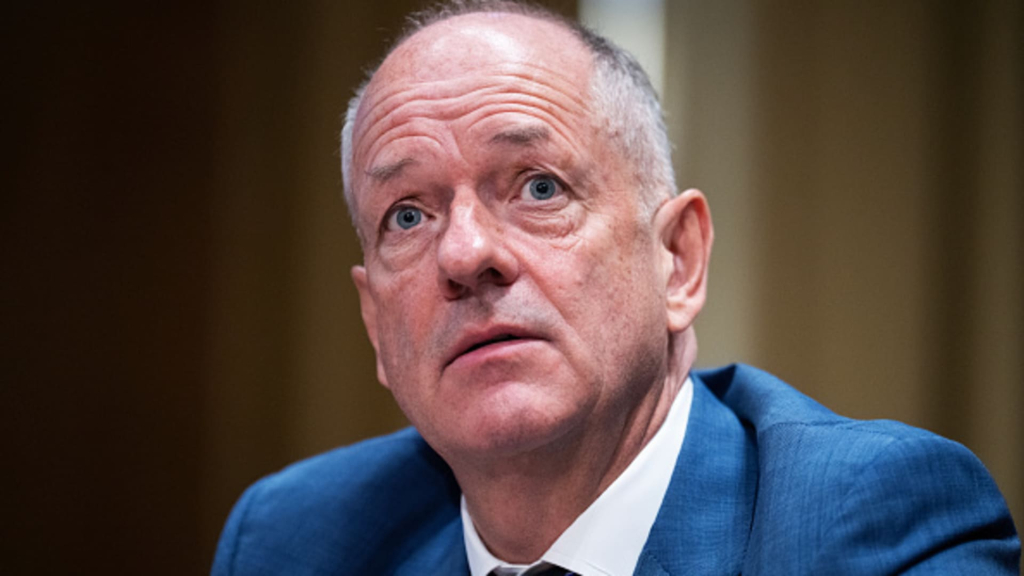UnitedHealth Group revealed on Tuesday a surprising leadership change with the abrupt resignation of CEO Andrew Witty, resulting in the suspension of its 2025 financial forecast. This news led to a nearly 10% drop in the company’s shares during premarket trading.
According to the company, Witty is stepping down immediately due to “personal reasons,” but will continue to lend his expertise as a senior advisor to his successor, Stephen Hemsley. Hemsley previously led UnitedHealth Group as CEO from 2006 to 2017 and has been with the organization since 1997.
Hemsley expressed gratitude for Witty’s leadership during particularly challenging periods for the company in a statement released to the public.
The company attributed its decision to withdraw its financial outlook to rising medical costs, a factor that has also negatively impacted other insurance providers. Both CVS Health and Elevance Health saw their stock prices dip nearly 3%, while Humana’s shares fell over 2%, and Cigna experienced a decrease of more than 1%.
Witty, who became CEO in 2021 after a long tenure at GlaxoSmithKline, faced significant challenges throughout his last year at UnitedHealth. These included government inquiries, a significant cyberattack, unexpected medical expenses, and the public backlash following the death of Brian Thompson, head of the company’s insurance division, UnitedHealthcare.
In December, Witty publicly called for reforms in the U.S. health system, which he described as “flawed,” while simultaneously defending the operations of UnitedHealthcare.
The company indicated that the outlook suspension was influenced by higher-than-anticipated medical costs for new enrollees in its private Medicare plans. UnitedHealth noted that “care activity continued to accelerate” and expanded across various benefit offerings compared to the first quarter of the year.
This announcement comes shortly after UnitedHealth reduced its annual profit forecast, citing increased medical expenses associated with Medicare Advantage plans. The insurance industry is grappling with these heightened costs as more seniors seek elective procedures that were postponed during the COVID-19 pandemic, such as joint replacements.
In addition, the company reported its first earnings miss since 2008 in April, leading to a significant stock decline that wiped out nearly $190 billion in market capitalization at that time.
However, investors may perceive Hemsley’s return favorably, given his role in transforming UnitedHealth into a $400 billion healthcare powerhouse, overseeing operations that include the nation’s largest private insurer and a major pharmacy benefit manager, as well as vast amounts of sensitive health data pertaining to millions of Americans.
“UnitedHealth Group has tremendous opportunities to grow as we continue to help improve health care and to perform to our potential — and, in so doing, return to our long-term growth objective of 13 to 16 percent,” Hemsley stated.
The company has projected a return to growth by 2026, according to the announcement.


























